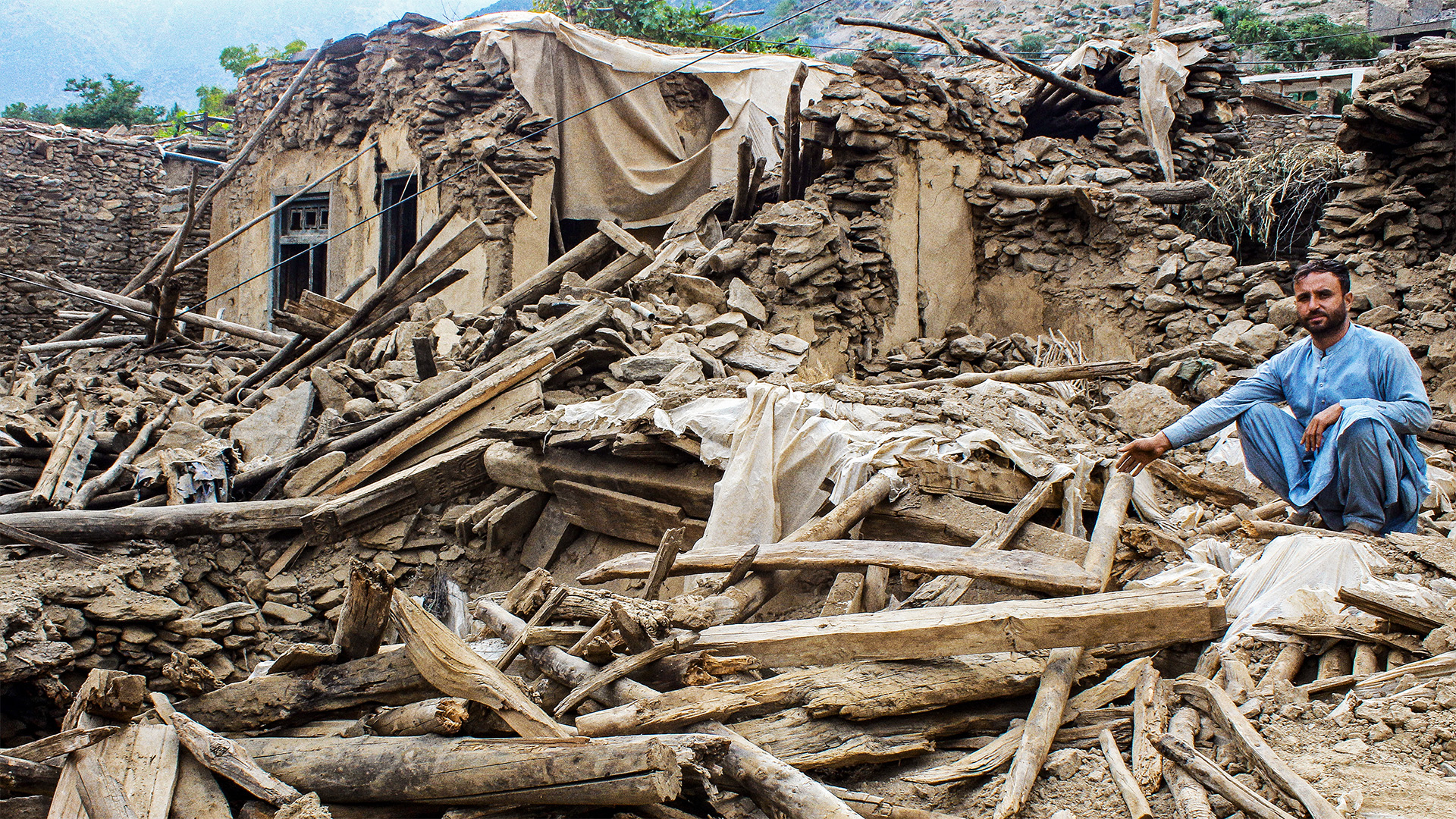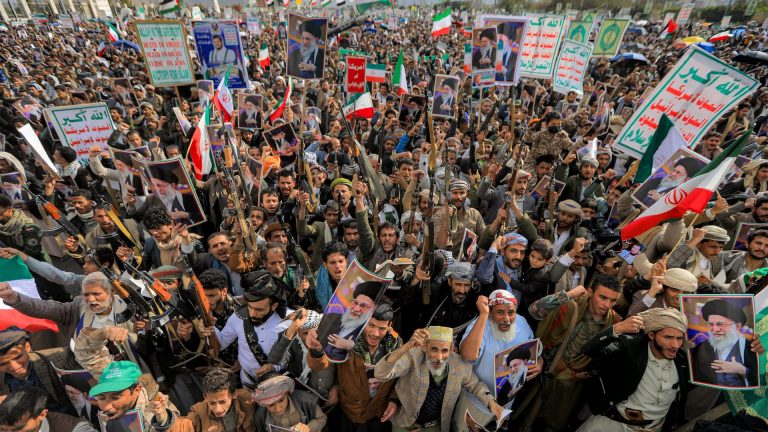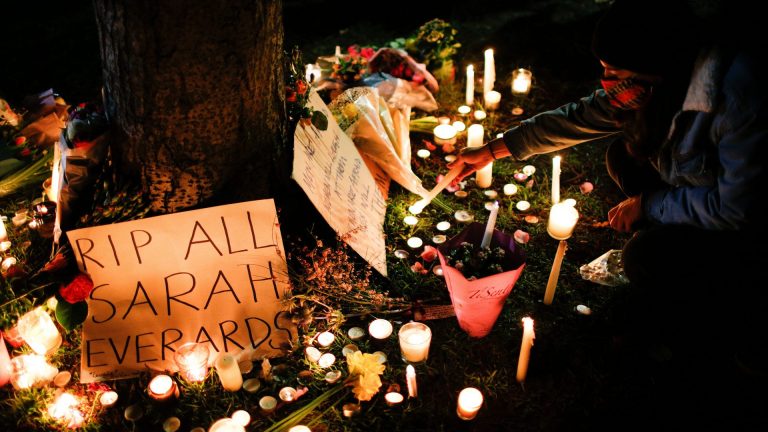Afghanistan has become a land of unrelenting tragedy. Poverty, hunger and repression are punctuated by natural disasters –- floods, earthquakes, landslides and snow storms that kill in numbers no one can count while the Taliban siphons off aid meant to save lives.
For the Taliban, each catastrophe is another opportunity to shake down a weary international community.
In the aftermath of the August 31 earthquake in eastern Afghanistan, Taliban mullahs have preached that natural disasters are divine retribution against sinners. They’ve said the same about penury and famine.
According to the World Health Organisation, 2,205 deaths were reported by Friday, September 5, from the 6.2-magnitude quake that destroyed whole communities in the remote valleys of the Hindu Kush near the border with Pakistan. It said 3,640 people were injured, and 6,782 homes destroyed. Mobile health teams set up temporary hospitals but survivors risked malaria and dengue fever which are rife in the region.
Aftershocks – registering at a magnitude of 5.6 – were now the biggest danger, said Ruhila Mateen, of Aseel Foundation, a local charity that delivers relief packages. Aseel had people on the ground when the earthquake happened.
Days before the quake, the region around the epicentre had been flooded by heavy rains, which “completely ruined” agricultural land and livestock, she said. Families who lived as subsistence farmers in a largely inaccessible part of the country were already running low on flour, wheat, milk and yogurt when the quake hit.
As seasonal rains segue into winter, Mateen said she expected many people to be living in tents relying on handouts for a long time.
Multiple countries have pledged help, including the UK’s promise of unspecified “emergency funding” which it says “is channelled through experienced partners, ensuring aid reaches those in need and does not go to the Taliban”.
This is an assurance no government can make with confidence. The Taliban regime has been systematically stealing international aid since returning to power four years ago, according to a report by the special inspector general for Afghanistan reconstruction. That US body was set up in 2008 with a Congressional mandate to trace billions of dollars that poured into the country for more than two decades, much of which went missing.
In a devastating study released in August, the inspectorate confirmed long-held suspicions of Taliban collusion with major non-government agencies, including kickbacks and bribery at high profile relief agencies like the World Food Program.
It said that while the US government and other donors say none of their money goes to the Taliban, in reality “a combination of funding pressures and public relations concerns encourage organisations to conceal how much of their aid winds up in places it was not intended to go”.
The inspectorate also found that “after all the layers of taxes, fees, bribery, and extortion,” only 30 to 40% of donor funds reached intended recipients.
After the Taliban’s return in August, 2021 and until the US State Department cancelled most aid to Afghanistan earlier this year, donors had provided almost $11bn in humanitarian and development aid. The Taliban diverted aid to affiliated groups, decided which charities could operate and then extorted their staff, and colluded “with senior UN officials to demand kickbacks from UN vendors”.
“A number of Afghans told us they were furious about the regime redirecting aid to its fighters and allies and away from starving children,” said Jordan Kane, the research analyst who oversaw the report.
“But they were even angrier about denials from donors, the UN, and NGOs,” she told The New World. The report said at least one Afghan was killed after talking to researchers.
Suggested Reading


Bashir Noorzai, the Taliban’s godfather
Among multiple recommendations, the report called for unrestricted oversight and the elimination of costly bureaucratic processes in aid delivery as part of State Department reforms by the Trump administration.
The closure this year of the US Agency for International Development, USAID, has removed one of the last major sources of humanitarian funding. With the agency gone, local and international NGOs lost not only money, but also protection and oversight, leaving them more vulnerable to Taliban interference and extortion.
The report casts doubt on co-operation with the Taliban, a regime officially recognised only by Russia but accommodated by many others in quieter ways, which only makes it more indifferent to diplomatic efforts urging more moderate rule.
While Afghanistan was poor and corrupt under the failed republic, and women were badly treated, there were discernible improvements in life quality, not least in education and health care. All that has been wiped out by the Taliban.
The ban on education for girls and women, for instance, has compounded a shortage of female doctors. The Taliban does not allow contact between men and women who are not related, limiting access to health care for women and girls that can prove life threatening.
The consequence of this, after the quake was that women were left to die in the rubble of homes that had collapsed on them.
This latest tragedy comes as millions of people are arriving as deportees from Pakistan and Iran. The money they were sending home from overseas jobs has now vanished, a loss estimated to be around $2bn a year.
Those deportees – 2.1 million so far this year, according to the UN’s Refugee Agency – return to a country with no functioning economy, adding to the vast numbers dependent on assistance just to stay alive.
With USAID shut down and other donors reducing commitments, international agencies face growing pressure while the extremist regime continues to control access and divert resources in a cycle of crisis that shows no sign of easing.












